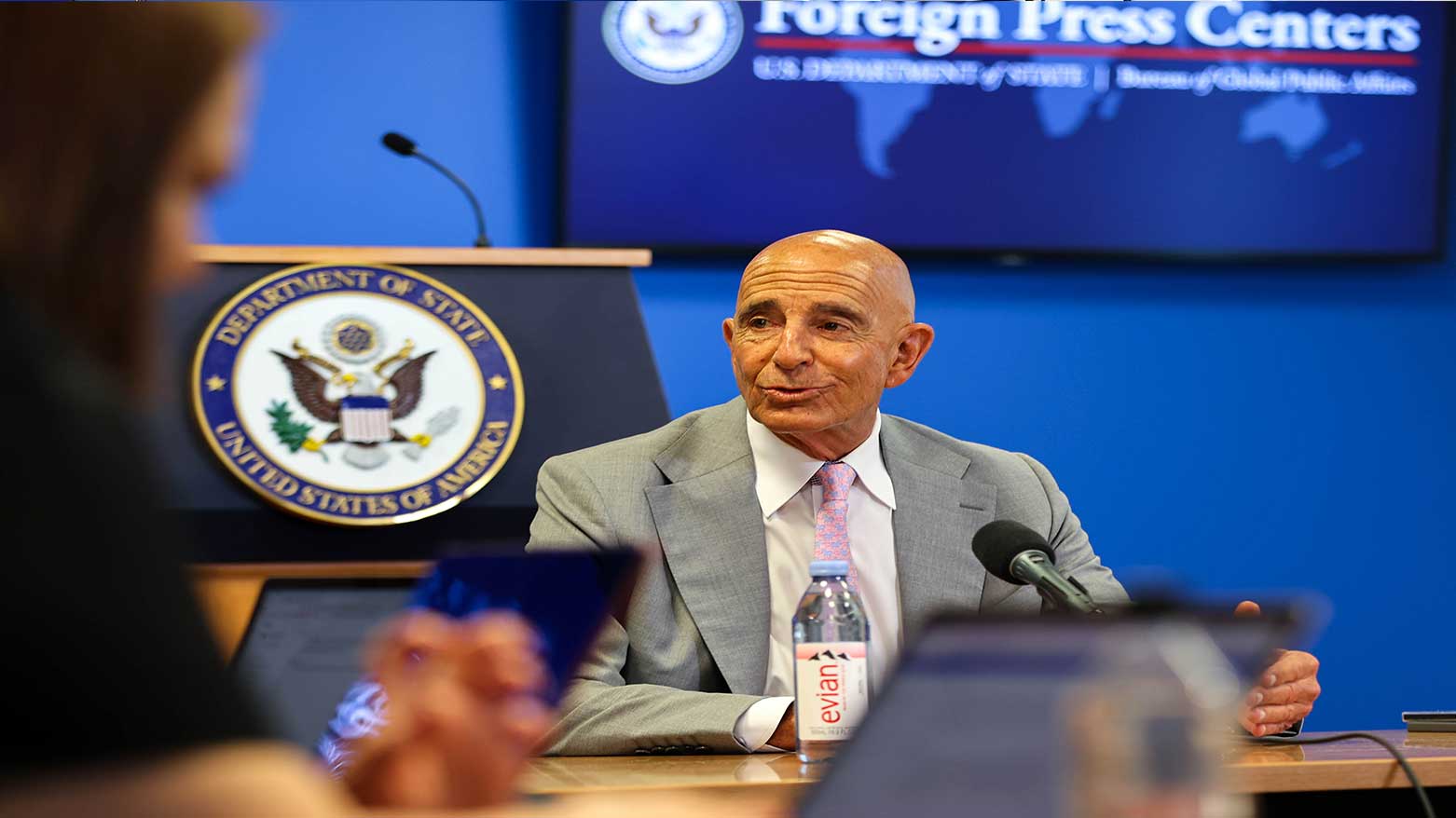U.S. Special Envoy Says Washington Supports SDF’s Integration into Unified Syrian State, Rules Out Independent Kurdish Entity
He emphasized that the United States supports the sovereignty and territorial integrity of Syria and opposes the idea of federalism that would divide the country along ethnic or sectarian lines.

ERBIL (Kurdistan24) — U.S. Ambassador to Türkiye and Special Envoy for Syria Thomas J. Barrack on Friday ruled out any U.S. support for an independent Kurdish state or a separate administration for the Syrian Democratic Forces (SDF), while reaffirming America’s commitment to facilitating their integration into a unified Syria.
Speaking during a press briefing at the New York Foreign Press Center, Barrack addressed questions on the future of the SDF and the broader U.S. position on Syria. He described the situation as “complicated,” noting that while the SDF — a Kurdish-led coalition — had been a reliable partner in the fight against ISIS, that partnership does not equate to support for autonomy or independence.
“SDF is YPG. YPG is a derivative of PKK,” Barrack said, referencing the Kurdistan Workers' Party, which is designated a terrorist organization by the U.S., Türkiye, and the EU. “We don’t owe them the ability to have their own independent government within a government. We owe them to usher in an onramp to a new regime in which there’s going to be reasonableness in how they integrate with one Syrian Government.”
He emphasized that the United States supports the sovereignty and territorial integrity of Syria and opposes the idea of federalism that would divide the country along ethnic or sectarian lines.
“Syria has taken the position that you can’t have a Syria under federalism,” Barrack said. “You can’t have a separate Druze force, a separate Alawite force, a separate Kurd force... There’s going to be one entity.”
Barrack confirmed that the U.S. has been involved in efforts to mediate between Syrian factions, but warned that Washington’s role is limited and not indefinite. “We’ll arbitrate, we’ll mediate, we’ll help,” he said. “But we’re not going to stick around forever as the babysitter. If you guys don’t agree, then don’t agree. But we’re not going to be here forever.”
He also revealed that a March agreement involving the SDF had failed due to lack of detail and rushed implementation. “The specifications matter,” Barrack said. “Now we’re at the point of really putting together the specifications, bringing everybody together.”
The ambassador made it clear that while the U.S. respects the SDF’s contributions and understands their expectations, the U.S. policy is rooted in supporting internationally recognized nation-states. “The United States honors nation-states that are acknowledged, viable, and legal – full stop,” he said.
“There’s not an indication that there’s going to be a free Kurdistan,” Barrack added. “There’s not an indication that there’s going to be a separate SDF state… There’s Syria. You have a structure in Syria that is unfolding.”
Acknowledging Congressional support for the SDF, Barrack stated the U.S. wants to ensure they are treated fairly in any future Syrian political settlement. “We want to make sure that they have an opportunity – an opportunity to onboard if that’s what they want to do,” he said. “If that’s not what they want to do, they have their own decisions. It’s not our decision.”
Barrack’s comments come amid renewed regional diplomacy on Syria and highlight Washington’s balancing act between honoring its partnerships and respecting the sovereignty of regional states.